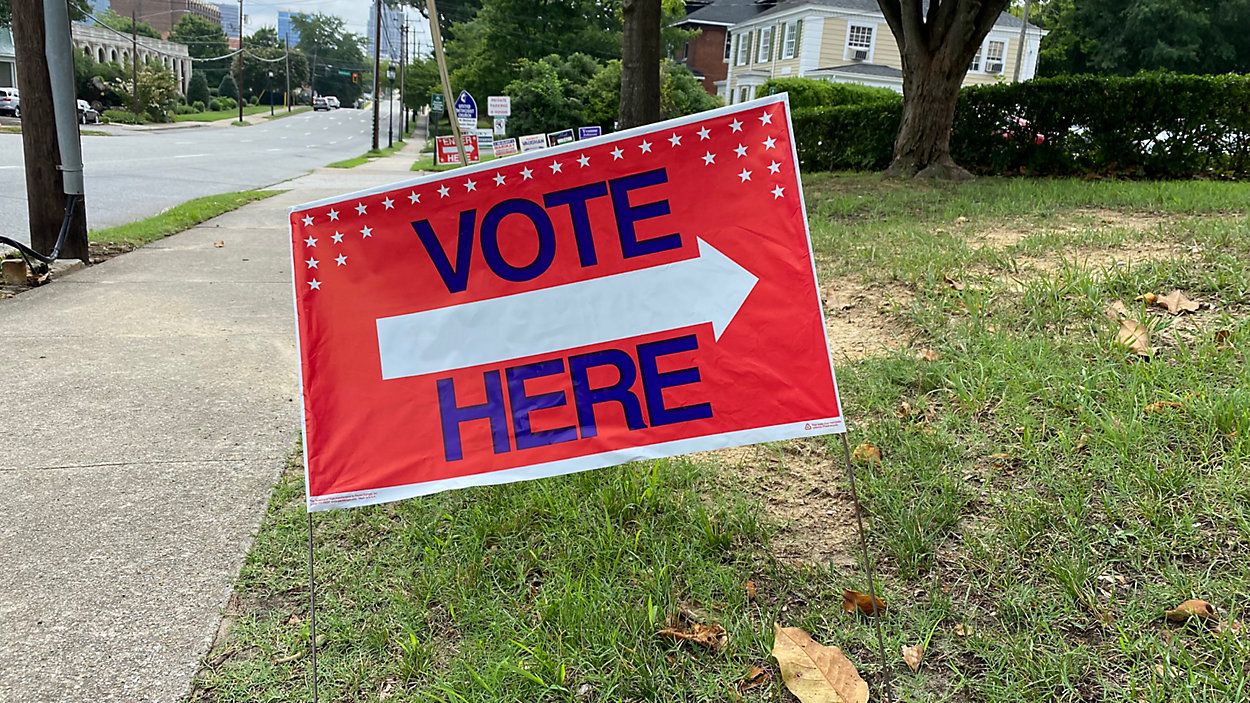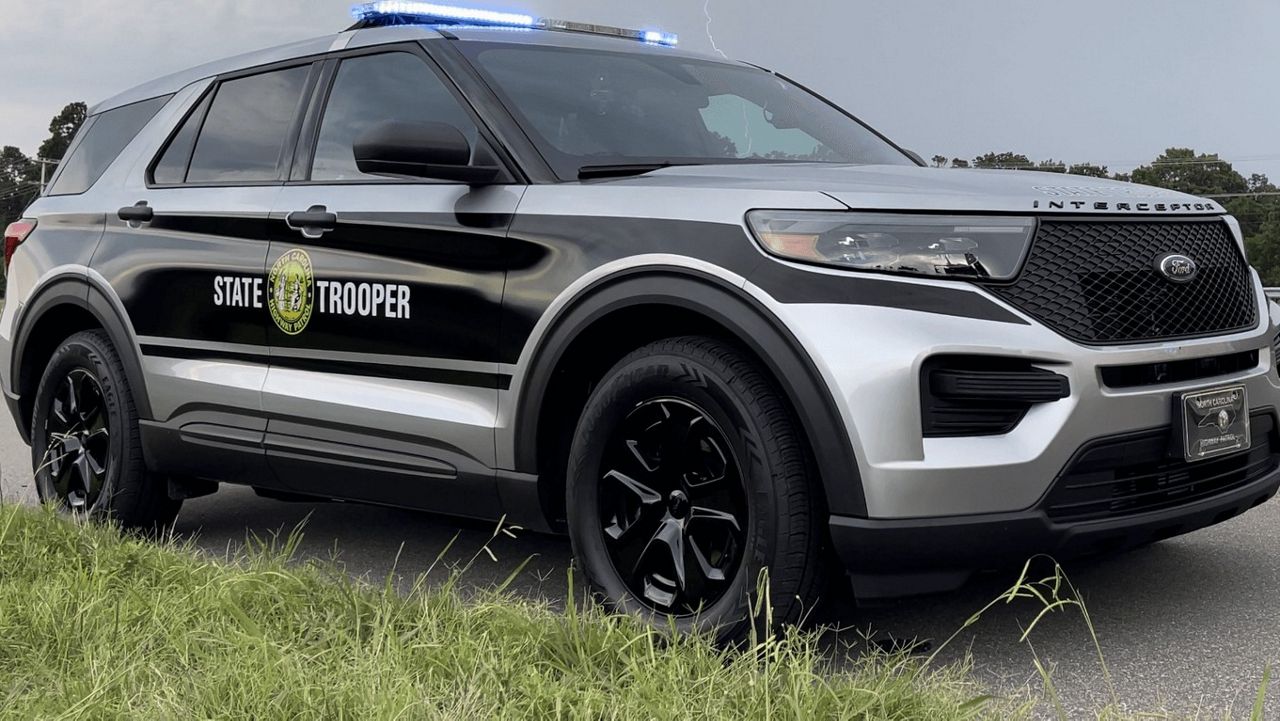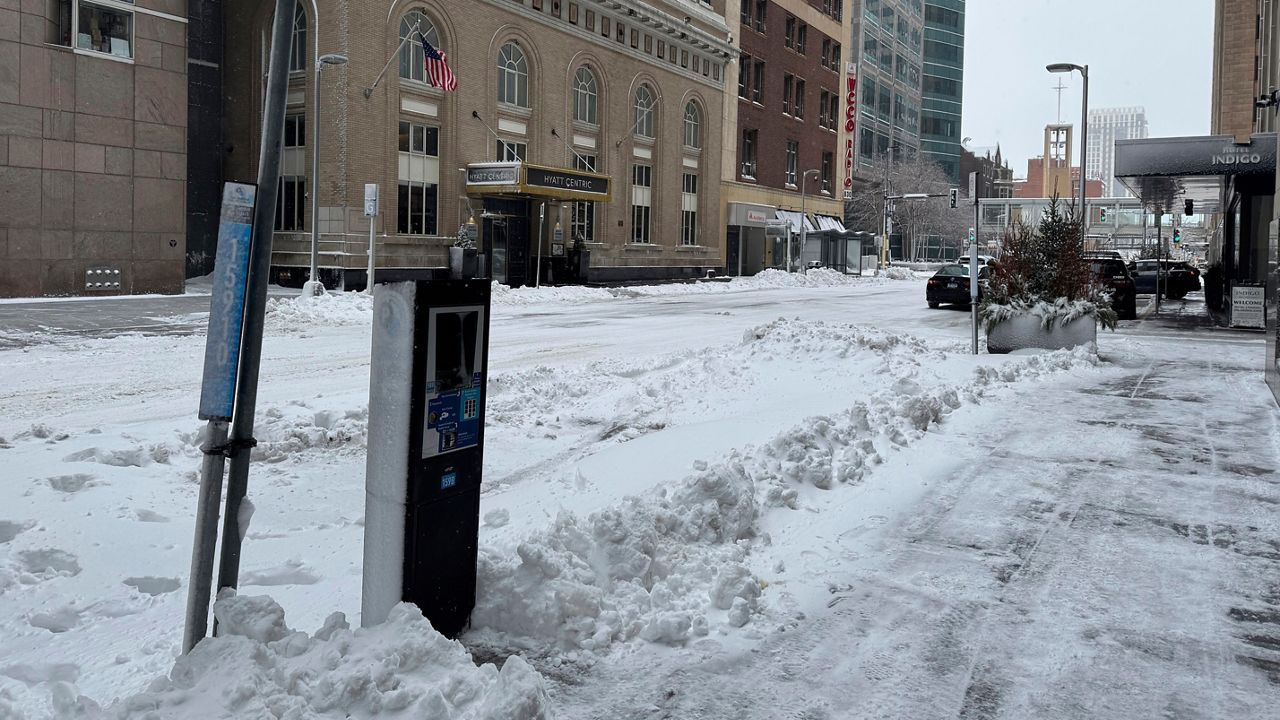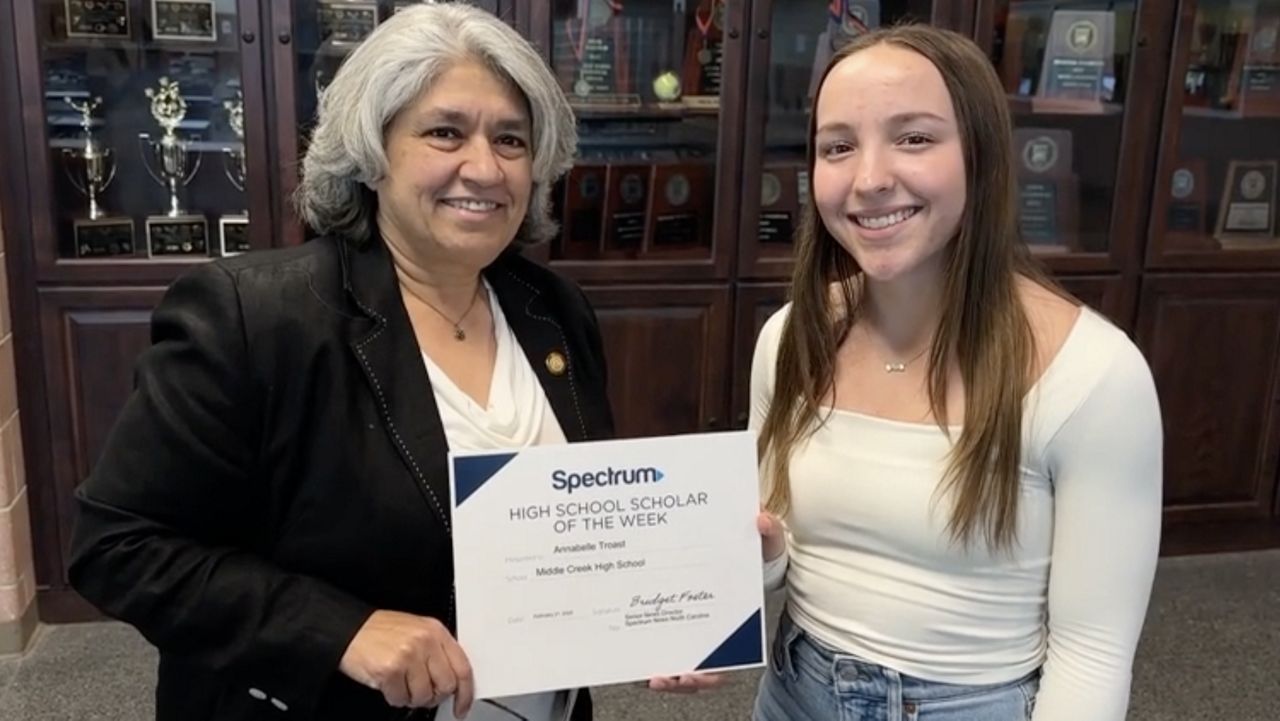Voters in North Carolina will need to show a photo ID to cast a ballot in person. Convicted felons still on probation or parole will not be allowed to vote. And North Carolina could have a whole new set of congressional districts before the 2024 elections.
The changes to elections came with a trio of rulings handed down by the North Carolina Supreme Court Friday.
The decisions were hailed by Republicans and condemned by Democrats, highlighting the partisan nature of the rulings and the divide over the laws governing elections.
“For years plaintiffs and activist courts have manipulated our Constitution to achieve policy outcomes that could not be won at the ballot box. Today’s rulings affirm that our Constitution cannot be exploited to fit the political whims of left-wing Democrats,” Senate Leader Phil Berger, a Rockingham County Republican, said in a statement Friday.
A new 5-2 Republican majority took over the North Carolina Supreme Court after the last election. The court took the unusual steps of reopening two cases, on voter ID and redistricting, and then reversing its own decisions. The court decided both cases last year when Democrats still had a 4-3 majority.
“The Court’s ruling in Harper v. Hall today is a devastating blow to democracy. Our constitution is supposed to be a check on the power of the legislature,” said North Carolina Attorney General Josh Stein, who is running for the Democratic nomination for governor in 2024.
“But these Republican justices have surrendered that role, taking power away from the people and giving it to an out-of-control gerrymandered Republican supermajority in the legislature. I will not stop fighting so the voters choose their representatives, not the other way around,” Stein said on social media Friday.
North Carolina Republicans have been trying to require voter ID for a decade. That effort, in the General Assembly and in state and federal courtrooms, paid off Friday with a new ruling from the state Supreme Court.
In-person voters will now be required to show photo ID before they’re allowed to cast their ballots.
The court case was over S.B. 824, the 2018 law that requires voters to show ID. That year, North Carolina voters approved a Constitutional amendment to require showing photo ID at the polls. The previous Democratic majority on the court decided the law discriminated against minorities. After the court flipped to the conservatives, so did its thinking on voter ID.
"The people of North Carolina overwhelmingly support voter identification and other efforts to promote greater integrity and confidence in our elections," Justice Phil Berger Jr., a Republican, wrote in the decision.
"Plaintiffs here have failed to prove beyond a reasonable doubt that S.B. 824 was enacted with discriminatory intent or that the law actually produces a meaningful disparate impact along racial lines," Berger wrote.
A judge stopped the law from going into effect as legal challenges worked their way through the courts. There is still a federal lawsuit active over voter ID in North Carolina, but the judge in that case has not issued an injunction to further delay implementing voter ID in the state.
The next elections in North Carolina are on September 12, with partisan primaries ahead of municipal elections in the fall.
The State Board of Elections quickly updated guidance for voters on its website.
“The State Board is working with the 100 county boards of elections to ensure a smooth rollout of the photo ID requirement,” the board said.
“This includes informing voters about the change and the acceptable forms of identification for voting, ensuring any voter without an ID can get one, training the county boards on implementation measures, updating forms and envelopes for absentee voting, creating and printing new signage for polling places, and many other efforts,” according to the board.
North Carolina’s 100 county boards of elections are beginning the work of purging convicted felons (who are still on probation or parole) from voter rolls.
A separate decision from the state Supreme Court said convicted felons could not have their voting rights restored until they had served out their entire sentence. That includes periods of post-release supervision, probation or parole.
A lower court had decided that convicted felons who were not actively in prison or jail could register to vote and cast their ballot. The state’s highest court reversed that ruling.
“As a result of the Supreme Court ruling, the State Board will receive lists of people currently serving felony sentences from the N.C. Department of Adult Correction and U.S. Department of Justice and forward them to the county boards of elections to cancel the registrations of anyone who is now ineligible,” the state board said.
The decision also means the State Board of Elections and the county boards will have to adjust all their voter registration forms.
“The State Board is committed to ensuring that all laws and court orders are followed and to provide copies of the new forms as quickly as possible to everyone who needs them,” said Karen Brinson Bell, director of the State Board of Elections. “In the meantime, copies of the new voter registration applications are available on the State Board’s website for printing."
With a third ruling Friday, the North Carolina Supreme Court reversed its own decision on another key election case. The court last year delayed primary elections and forced the Republican-led General Assembly to redraw district maps for the state legislature. A special master with a lower court drew the maps for the 2022 congressional elections in North Carolina.
The case came down to partisan gerrymandering. Justices found that the legislature drew the maps to favor Republicans over Democrats, which, they decided, violated the state constitution. The new ruling reverses that decision, finding that partisan gerrymandering is not an issue for the court.
“Four members of this Court wrongly held that partisan gerrymandering claims are justiciable and violate provisions of the Declaration of Rights in the North Carolina Constitution,” Chief Justice Paul Newby wrote in the majority opinion released Friday.
“This Court then also erroneously declared that the 2021 Plans were unconstitutional partisan gerrymanders,” Newby wrote.
“Courts are not intended to meddle in policy matters,” Newby wrote. The ruling clears the way for the Republican-controlled General Assembly to once again draw new maps for legislative and congressional districts.
The ruling could have national implications, potentially allowing the state to send more Republicans to Congress in the 2024 elections.
Experts say the congressional maps created by Republicans in the legislature would have likely led to North Carolina sending 10 Republicans and four Democrats to Congress in the 2022 elections. Under the court-imposed map, North Carolina elected seven Democrats and seven Republicans to the U.S. House of Representatives.
In a dissenting opinion, Justice Anita Earls wrote: “This Court rejected the idea that the voters of this state must be hostage to the partisan objectives of the ruling party in the General Assembly.”
“Unchecked partisan gerrymandering allows the controlling party of the General Assembly to draw legislative redistricting plans in a way that dilutes the voting power of voters in the disfavored party. In so doing, those who hold political power can guarantee that they remain in office for decades, making them impervious to the popular will,” wrote Earls, a Democrat.








